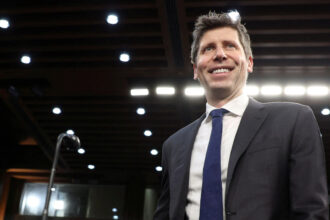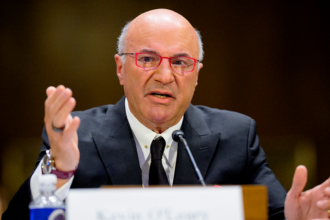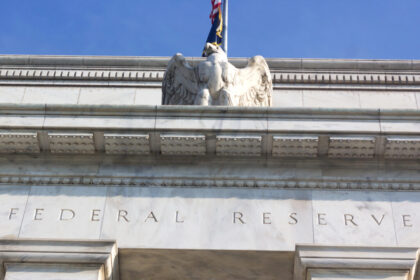In the NFL offseason, star running back Saquon Barkley signed a $40 million contract extension with the Philadelphia Eagles. Make no mistake, he earned it after rushing for 2,005 yards in the regular season and helping to bring another Lombardi Trophy to Philadelphia. I’m not alone in thinking this. As one sports writer put the point, “He deserves it…Barkley is easy to root for, not only because he can jump backward over people, but also because he works hard, he’s kind, and he’s a great teammate.”
Rarely does anyone argue that it’s morally wrong for a football player, or other performer, to earn tens of millions of dollars. But if a CEO earns the same amount, it’s greed, exploitation, or a symptom of the ills of late-stage capitalism.
Even when fans do complain about the high salaries of people who play a game for a living, it never comes with the vitriol that accompanies complaints about the CEO. Why do people react so differently to the wealth of an entertainer and the wealth of an executive?
I have a couple of guesses: (1) it’s harder to see the value created by executives and (2) people suspect that they make their millions by exploiting the labor of their employees. But both of these concerns miss the mark. What really matters when it comes to compensation is that it is the result of the value an individual creates. That’s why a CEO is no less deserving of their market-made wealth than the star athlete.
Let’s examine each of these guesses about different reactions to high pay. First, with athletes and entertainers, the value they create is visible. You can literally see Barkley hurdle backwards over a defender. You can also see that he’s special because other running backs in the league aren’t doing the same. So the connection between what Barkley does to help his team win games and what he earns is obvious. Similarly, you can hear Taylor Swift sing and see the packed stadiums and elated fanbase. Maybe you’re not a fan of her music, but you can understand why she became a billionaire.
In contrast, a CEO’s contribution is buried in spreadsheets and meetings. If they make good decisions, the company thrives—but you don’t see it happen in the way you see Barkley run. There’s no highlight reel for efficient logistics or better management.
Just because we can’t see the value being created doesn’t mean it’s not real. By analogy, great coaches help their teams win even though they’re not on the field themselves. They not only design plays and motivate players, but hire assistants, establish organizational culture, and advise on draft picks. A CEO is a bit like that. The CEO of Starbucks isn’t behind the counter pouring coffee, but they help create and manage the processes and institutions that make it possible for millions of people to get their lattes every morning. That someone’s contribution to an organization’s success is less visible than another’s because it takes place “behind the scenes” doesn’t mean it’s less valuable.
Second, people tend to distrust money made through employing others. It’s no problem to get rich by selling tickets to your performance—those are simply willing customers. But many object that CEOs get rich at the expense of their workers, who are really the ones generating value. This is what is meant when people say employers are exploiting workers’ labor.
However, an employer no more exploits their employees than Saquon Barkley or Taylor Swift exploits their fans. The deal that entertainers make with their fans is, in a crucial respect, economically and ethically similar to the deal that employers make with employees: they’re both the result of an agreement that people voluntarily accept because they expect it to make them better off.
Milton Friedman, a great economic communicator, said, “The most important single central fact about a free market is that no exchange takes place unless both parties benefit.” In effect, Taylor Swift makes people an offer: I’ll put on a concert for you if you’ll pay the ticket price. Someone who’s not a fan doesn’t have to take her up on it, and they’re no worse off for having been given the option. On the other hand, a devoted Swiftie probably believes buying the ticket will make them better off and will accept the deal.
Employers make prospective employees a similar offer: I’ll pay you a certain amount per hour if you’ll pour coffee for my customers. If you don’t want the job, you don’t have to take it, and you’re no worse off for having the offer. On the other hand, if you think earning money as a barista will make you better off, you’ll accept it.
One might object that employers are more exploitative than entertainers because it’s a lot worse to be unemployed than unentertained, so in a meaningful respect, someone has no choice but to take a job. Although there isn’t space to address this point in detail here, I’ll just note that even if you’re sympathetic to this objection, it makes little sense to place special blame on a worker’s employer, assuming the employer is not responsible for the worker’s bad alternatives. A worker’s employer is the person who made them the best offer they received, as evidenced by the fact that the worker accepted it over all of the other ones. So if you want to criticize someone, it should be all of the employers who offered the worker worse deals or no deal at all.
Here’s the point: just as entertainers attract viewers by offering them something they value, so too do executives attract workers by offering them something they value. They both get rich by making others better off. So the market-made wealth of a CEO is no less admirable than that of Saquon Barkley, even if that’s sometimes harder to see.
(1 COMMENTS)















